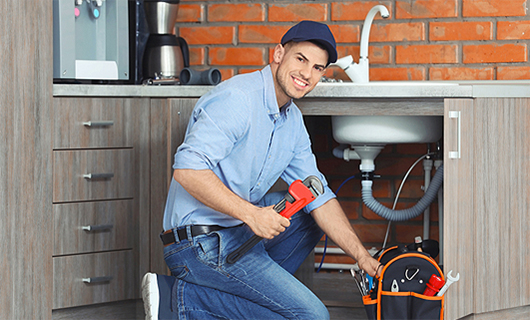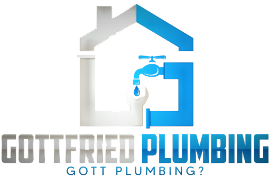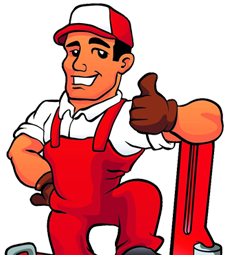A clogged kitchen drain can bring everything to a standstill, turning routine tasks into major headaches. In Boerne homes, where family meals and gatherings are central to daily life, a clear and functional sink is essential. Unfortunately, the combination of grease, food particles, and daily wear and tear can quickly lead to stubborn blockages that can disrupt your household.
To help you tackle this common issue, the professional plumbers at Gottfried Plumbing share helpful tips on how to unclog your kitchen drain and keep it flowing freely. Whether addressing a minor backup or considering professional assistance, these practical steps will restore your kitchen to peak performance in no time.
Understanding the Causes of Clogged Drains
Clogged kitchen drains often result from common household habits such as:
- Grease and Oil: These solidify in pipes as they cool, creating tough blockages.
- Food Scraps: Items like coffee grounds, pasta, fruit peels, and eggshells can lodge in pipes and accumulate over time.
- Soap Residue: Soap combined with hard water minerals can form a sticky buildup that narrows pipe interiors.
- Mineral Deposits: Hard water leaves mineral buildup, which traps debris and restricts water flow.
- Small Items: Utensils, bottle caps, or other small objects accidentally dropped into the sink can cause clogs.
Signs of a Clogged Drain in Your Boerne Kitchen
A clogged drain rarely happens without warning. Paying attention to early signs can help you address the issue before it escalates into a major problem.
Here’s a closer look at the most common signs of a clogged drain:
Slow Water Drainage
When water takes longer than usual to flow down the sink, it shows a developing blockage. This is often caused by grease, food scraps, or soap residue building up inside the pipes, restricting the water’s movement. Over time, slow drainage can worsen and completely block the flow.
Foul Odors
Unpleasant smells emanating from your kitchen sink are often the result of decomposing food particles, grease, or other debris trapped in the drain. Over time, these materials can rot, releasing a foul odor that permeates your kitchen.
Gurgling Noises
A gurgling sound occurs when air is trapped in the pipes due to a partial blockage. As water flows past the obstruction, it forces air through the small gaps, creating a gurgling sound. This issue often signals that grease, food particles, or other debris are starting to clog the pipe. Left unaddressed, the blockage can worsen, potentially leading to complete drainage failure.
Water Backup or Standing Water
Water pooling in the sink or backing up from the drain strongly indicates a severe clog. This happens when the blockage prevents water from passing through the pipes, leading to overflow. Addressing this quickly is essential to avoid water damage or unsanitary conditions.
Unexplained Puddles or Leaks
Sometimes, clogs can cause water to back up into other areas, leading to small puddles around the sink or cabinets. These can signal that water is finding alternate paths to escape due to a blocked drain.
DIY Drain Unclogging Methods
Simple and effective DIY methods often resolve the issue when your kitchen drain becomes clogged. These budget-friendly techniques require minimal tools, making them a great first step before seeking professional assistance.
- Use Baking Soda and Vinegar
A safe and effective method for clearing minor clogs is the combination of baking soda and vinegar. Start by pouring a cup of baking soda down the drain, followed by a mixture of one cup of vinegar and one cup of water. Cover the drain and let the solution fizz for 5 to 10 minutes. The reaction helps break down grease and debris. Finish by flushing the drain with boiling water to remove the loosened blockage.
2. Plunge the Drain
A plunger is a handy tool for tackling tougher blockages. Begin by adding enough water to cover the plunger’s cup, creating a tight seal over the drain. Use firm, steady motions to create suction and dislodge the clog.
Seal the other side with a stopper or cloth for double-basin sinks to concentrate the pressure. Repeat the plunging process several times. A free-flowing drain indicates you have successfully cleared the clog.
3. Use Boiling Water
Sometimes, a simple flush of boiling water is all it takes to clear grease or minor debris buildup. Carefully pour boiling water down the drain in stages, allowing it to work through the pipes. This is particularly effective for clearing grease that has started to solidify.
When to Call a Professional For Clogged Kitchen Drains in Boerne TX

Sometimes, even the best DIY efforts aren’t enough to fix a clogged drain. Knowing when to call a plumber can save you from costly repairs, water damage, and the hassle of recurring clogs.
At Gottfried Plumbing, we suggest homeowners in Boerne, Texas, reach out to us when these issues arise:
- Persistent slow drainage despite DIY attempts
- Frequent clogs occurring within a short period
- Foul odors that don’t dissipate after cleaning
- Water backup or standing water in the sink
- Gurgling noises indicating deeper pipe issues
- Visible leaks or water puddles around the sink area
- Failed attempts using a plunger or drain snake
- Suspected damage to pipes or the main sewer line
Say Goodbye to Stubborn Clogs with Gottfried Plumbing
Dealing with clogged drains in your Boerne kitchen doesn’t have to be a hassle. As an award-winning, licensed, and insured plumbing company, Gottfried Plumbing is here to help. Our plumbers are nearby and available 24/7 to tackle plumbing emergencies so your kitchen continues to function properly.
Call 830-331-2055 to schedule an appointment or request immediate assistance.

